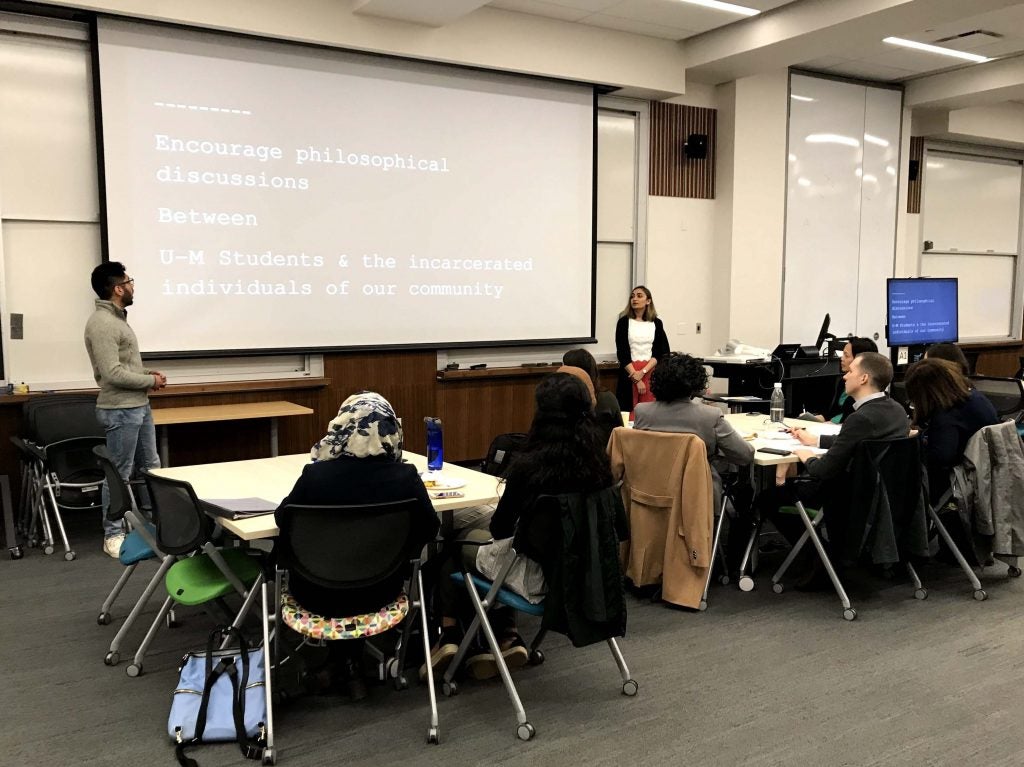Our summer research included the compilation of a literature review which included details on the nature of incarceration in the United States, the impact of prison education programs, and, most specifically, the findings of other philosophy prison programs. An additional component of our summer research involved the creation of our program syllabus that explicates the specific model, case-studies and timeline that are the foundation of Aretē.
The aim of the literature review was to gather more information on the field we will be entering. So, we asked ourselves: what are the current incarceration rates in the United States? Are there trends in the demographics of people who are incarcerated? Are prisons and law enforcement deterring crime? If not, what interventions are currently being done? Have they worked? And lastly, have initiatives with philosophy in prisons been taken, and found to be particularly desired and helpful?
Meanwhile, for the Aretē syllabus, our main questions were to determine: what structural model should we use for our program (this question was prompted by the desire to eliminate any implicit power structures in our program)? What case studies would stimulate discussion amongst both groups?
Our literature review and syllabus greatly influenced our fall plans by providing us with a greater understanding of the potential benefit of, along with the current lack of a philosophy prison program that utilizes a co-teaching model.
The initial vision of Aretē was not thought out in great detail. For starters, we were not sure whether we would be a program, organization or club. Our plans were to create a collection of texts and form groups including a few incarcerated members and undergraduates. These groups, under the facilitation of a few graduate students and a professor, would then discuss and raise certain philosophical questions, arguments and distinctions. We aimed to measure our success via decreasing recidivism rates.
Clearly, much has changed since our involvement with the BLI Capstone Program. From bootcamp, our own research and feedback from BLI advisors, we have been able to understand a few key takeaways. Firstly, we quickly became more aware that we should empower others as we are often equipped with the ability to present solutions to issues we are facing. Furthermore, as community members we must not enforce our ideas or solutions upon others. We learned that there is a lot more work that goes into carrying out an idea. And that things always change. Every week we learn something new, or must reconcile with a new critique, that requires us to try out many ideas. In the end, we settled upon a novel proposal, a proposal different from the version we had first imagined, one that encompasses the greater awareness that we have gained through our revisions. Our vision has become more implementable, realistic and detailed. Over the fall semester, we plan to continue to grow and gain experience in understanding how to deliver case-studies and manage two groups.
Over the summer, we have thoroughly enjoyed being able to become engrossed in our idea to better understand the depths of our program. We now understand that there were a plethora of facets to our intended vision that we did not initially recognize. With the help of the BLI Capstone Program, we have been able to grapple with the many implications and assumptions that our original idea involved and reach new solutions.




